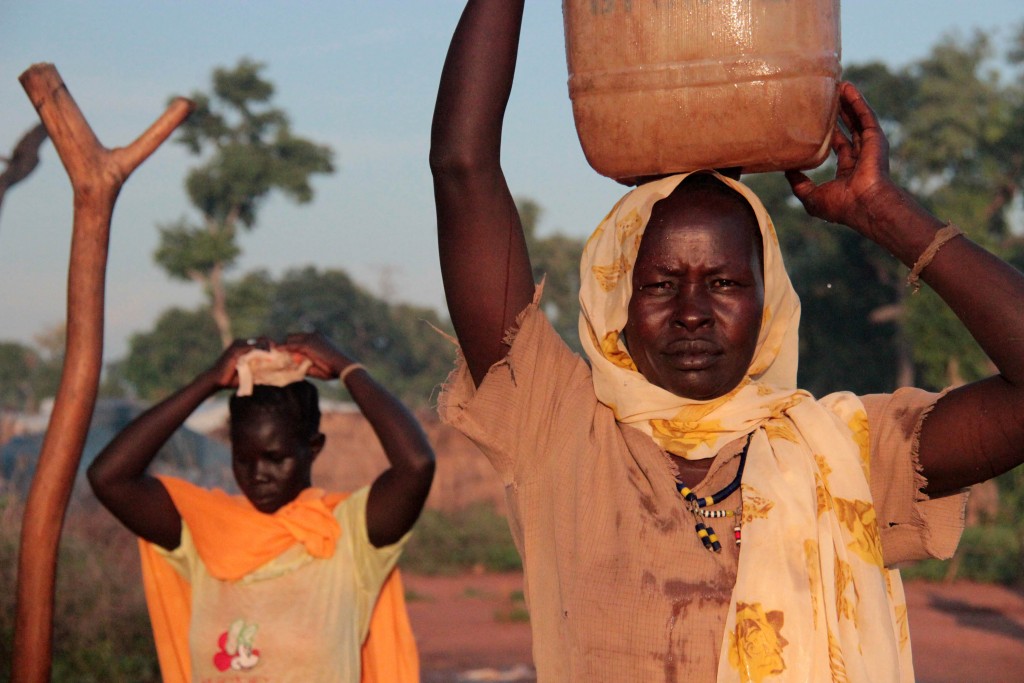On Tuesday, dozens of women from the Abu Shouk camp for the displaced organised a vigil in front of the headquarters of the UN-AU Mission in Darfur (UNAMID) in El Fasher, capital of North Darfur, in protest against the marginalisation of women in the camps.
Participants of the vigil -which coincided with the visit of African Union Commissioner for Peace and Security Smaїl Chergui and UN Under-Secretary-General for Peacekeeping Operations Jean-Pierre Lacroix to the mission- raised banners saying “Displaced women have rights too” and “Justice is a national duty”.
Salwa Jaafar, the representative of the Abu Shouk camp protesters, told the reporters in El Fasher that “women in the camps feel they are treated as second-rate citizens, while should have an effective role in their society”.

She said that they chose the UNAMID office as a venue for their protest because “of the seriousness of the UN agencies’ officials in dealing with the issues of the displaced”.
She affirmed that the women in the Darfur camps for the displaced welcome and support the peace agreement “which stipulates the participation of displaced women in decision-making positions in public functions”.
An UN-funded mapping exercise earlier this year to promote political participation and identify and later train potential candidates found over 1,000 women willing to represent their communities, despite barriers ranging from patriarchal systems and lack of training, to travel expenses and childcare needs.
Representation
Women have been visible leaders on the frontlines of the 2018 December Revolution against the regime of Omar Al Bashir, ousted in April the following year. News outlets estimated that about 70 per cent of the protesters were women.
The Constitutional Document of August 2019 guarantees 40 per cent representation to women in the 300-seat Legislative Council, still to be formed. The new quota is an increase from the previous representation quota of 25 per cent set during the former regime of ousted President Omar Al Bashir.
Prime Minister Abdallah Hamdok appointed four women ministers in September 2019 (Foreign Affairs, Labour and Social Development, Higher Education, and Youth and Sports). The current acting Finance Minister is a woman.
Despite campaigns demanding an increase of women at decision-making posts, only two women are among the 18 new civilian state governors appointed in July this year.
Concerning oppressive legislation, in November last year the new government repealed the repressive Public Order Law, one of the tools of the Al Bashir regime to repress women.
The death penalty for apostasy has been repealed. Female Genital Mutilation (FGM) has been outlawed and the execution of children has been banned. Women no longer need the consent of their husband or male guardian to travel with their children.
Radio Dabanga’s editorial independence means that we can continue to provide factual updates about political developments to Sudanese and international actors, educate people about how to avoid outbreaks of infectious diseases, and provide a window to the world for those in all corners of Sudan. Support Radio Dabanga for as little as €2.50, the equivalent of a cup of coffee.

